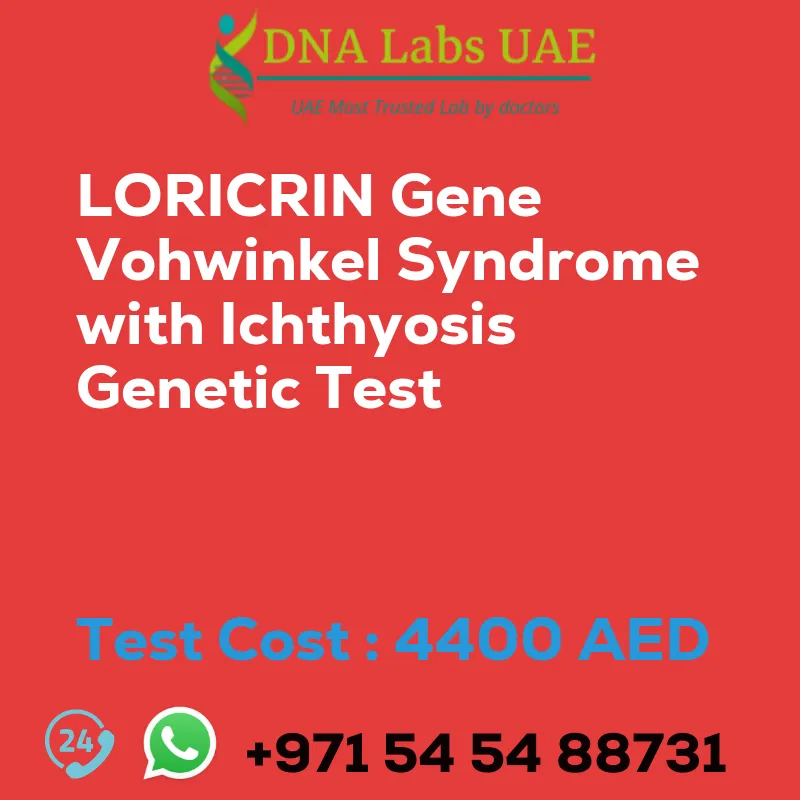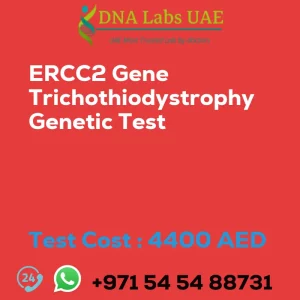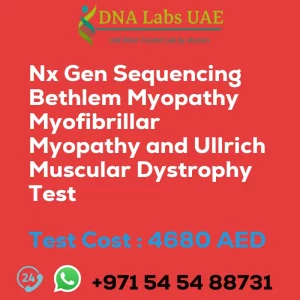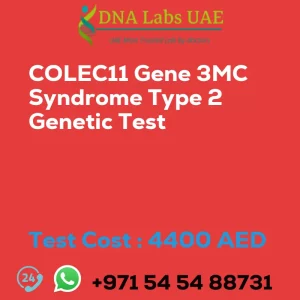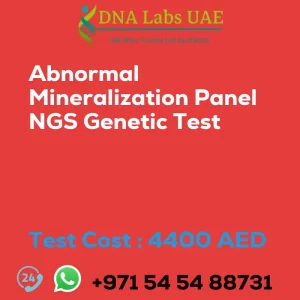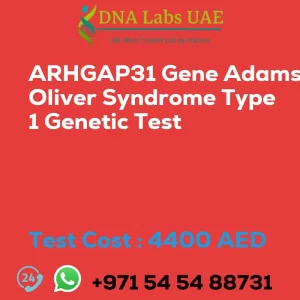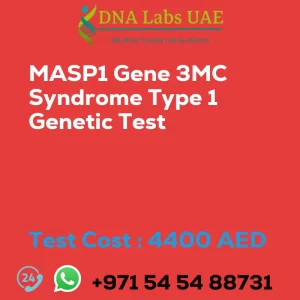LORICRIN Gene Vohwinkel Syndrome with Ichthyosis Genetic Test
Test Name: LORICRIN Gene Vohwinkel Syndrome with Ichthyosis Genetic Test
Components: NGS Technology
Price: 4400.0 AED
Sample Condition: Blood or Extracted DNA or One drop Blood on FTA Card
Report Delivery: 3 to 4 Weeks
Test Type: Osteology Dermatology Immunology Disorders
Doctor: Dermatologist
Test Department: Genetics
Pre Test Information: Clinical History of Patient who is going for LORICRIN Gene Vohwinkel Syndrome with Ichthyosis NGS Genetic DNA Test. A Genetic Counselling session to draw a pedigree chart of family members affected with LORICRIN Gene Vohwinkel Syndrome with Ichthyosis NGS Genetic DNA Test gene LORICRIN.
Test Details: The LORICRIN gene is responsible for providing instructions for the production of a protein called loricrin. This protein is essential for the formation of the outermost layer of the skin, known as the stratum corneum. Mutations in the LORICRIN gene can lead to a condition called Vohwinkel syndrome with ichthyosis. Vohwinkel syndrome with ichthyosis is a rare genetic disorder characterized by thickening of the skin (ichthyosis) and the presence of certain skin abnormalities. This condition is inherited in an autosomal dominant manner, which means that an affected individual has a 50% chance of passing the mutation to their children. NGS (Next-Generation Sequencing) is a type of genetic test that allows for the simultaneous analysis of multiple genes, including the LORICRIN gene. This test can help identify specific mutations in the LORICRIN gene that are responsible for Vohwinkel syndrome with ichthyosis. By performing NGS testing, healthcare professionals can accurately diagnose individuals with Vohwinkel syndrome with ichthyosis and provide appropriate management and treatment options. Additionally, this genetic test can also be used for carrier testing in individuals with a family history of the condition. It is important to note that genetic testing should be done under the guidance of a healthcare professional or genetic counselor who can provide appropriate counseling and support throughout the testing process.
| Test Name | LORICRIN Gene Vohwinkel syndrome with ichthyosis Genetic Test |
|---|---|
| Components | |
| Price | 4400.0 AED |
| Sample Condition | Blood or Extracted DNA or One drop Blood on FTA Card |
| Report Delivery | 3 to 4 Weeks |
| Method | NGS Technology |
| Test type | Osteology Dermatology Immunology Disorders |
| Doctor | Dermatologist |
| Test Department: | Genetics |
| Pre Test Information | Clinical History of Patient who is going for LORICRIN Gene Vohwinkel syndrome with ichthyosis NGS Genetic DNA Test. A Genetic Counselling session to draw a pedigree chart of family members affected with LORICRIN Gene Vohwinkel syndrome with ichthyosis NGS Genetic DNA Test gene LORICRIN |
| Test Details |
The LORICRIN gene is responsible for providing instructions for the production of a protein called loricrin. This protein is essential for the formation of the outermost layer of the skin, known as the stratum corneum. Mutations in the LORICRIN gene can lead to a condition called Vohwinkel syndrome with ichthyosis. Vohwinkel syndrome with ichthyosis is a rare genetic disorder characterized by thickening of the skin (ichthyosis) and the presence of certain skin abnormalities. This condition is inherited in an autosomal dominant manner, which means that an affected individual has a 50% chance of passing the mutation to their children. NGS (Next-Generation Sequencing) is a type of genetic test that allows for the simultaneous analysis of multiple genes, including the LORICRIN gene. This test can help identify specific mutations in the LORICRIN gene that are responsible for Vohwinkel syndrome with ichthyosis. By performing NGS testing, healthcare professionals can accurately diagnose individuals with Vohwinkel syndrome with ichthyosis and provide appropriate management and treatment options. Additionally, this genetic test can also be used for carrier testing in individuals with a family history of the condition. It is important to note that genetic testing should be done under the guidance of a healthcare professional or genetic counselor who can provide appropriate counseling and support throughout the testing process. |

